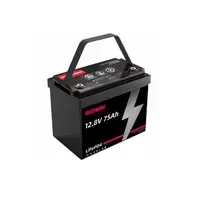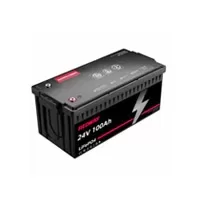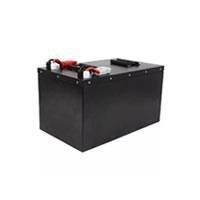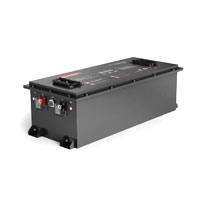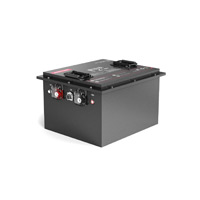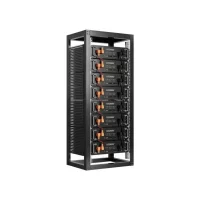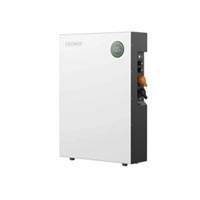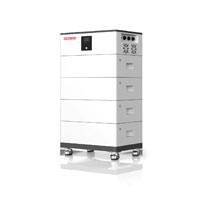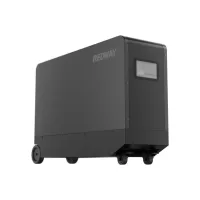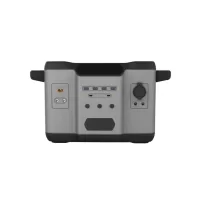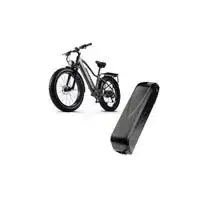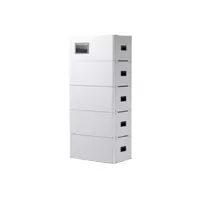Welcome to our blog post where we dive into the world of energy consumption and ask the burning question: is 40 kWh per day a lot? We all rely on electricity to power our homes, but how much is too much? In this article, we’ll break down the basics of energy usage, explore average daily consumption in different countries, discuss factors that affect energy usage, and ultimately determine whether or not 40 kWh per day falls into the “excessive” category. So grab a cup of coffee (powered by electricity, of course) and let’s get started!
The basics of energy consumption
Energy consumption is a fundamental aspect of modern life. Whether we’re powering our homes, charging our devices, or fueling our cars, energy is at the core of it all. But what exactly does energy consumption mean? Essentially, it refers to the amount of energy used over a given period of time.
Now let’s talk about kilowatt-hours (kWh), which is the unit commonly used to measure electricity consumption. One kWh represents 1,000 watts being used for one hour. It’s important to note that different appliances and activities consume varying amounts of energy.
The key to understanding your own energy usage lies in tracking how many kWh you use each day. This can be done by monitoring your utility bills or using smart meters that provide real-time data on your electricity usage.
It’s worth noting that energy consumption varies greatly depending on factors such as the size and age of your home, the number and type of appliances you have, climate conditions, and personal habits. For example, running multiple air conditioners during hot summer months will significantly increase your daily energy usage compared to using them sparingly.
So where does 40 kWh per day fit into this equation? Well, it falls within an average range for most households but may be considered high if you live alone in a small apartment with minimal appliances. On the other hand, larger households with more occupants and numerous electronic devices may find this level of consumption reasonable.
In conclusion (without saying “in conclusion”), understanding the basics of energy consumption helps us make informed decisions about reducing our carbon footprint and saving money on utilities. By monitoring our daily kWh usage and implementing simple strategies like turning off lights when not needed or investing in more efficient appliances, we can take steps towards a more sustainable future while keeping our electricity bills in check!
Understanding kWh and its usage
Understanding kWh and its usage:
Energy consumption is measured in kilowatt-hours (kWh), which represents the amount of electricity used over a certain period of time. It is important to understand what kWh means and how it relates to your daily energy usage.
A kilowatt-hour is equal to using one kilowatt (1,000 watts) for one hour. This measurement helps us determine the amount of energy we consume on a daily basis. It’s worth noting that appliances with higher wattage will use more energy than those with lower wattage.
When it comes to understanding kWh usage, it’s essential to consider the different devices and activities that contribute to your overall consumption. For example, running household appliances such as refrigerators, air conditioners, or washing machines can significantly impact your daily energy usage.
Additionally, factors like the size and efficiency of your home, climate conditions in your area, and lifestyle choices also play a role in determining your energy needs. The number of occupants in a house can affect the total daily consumption as well.
By monitoring how many kWh you use per day, you can develop strategies for reducing unnecessary consumption. Simple steps like turning off lights when not in use or using energy-efficient appliances can make a significant difference over time.
Understanding kWh and its usage allows you to have better control over your energy consumption habits. By being conscious about how much electricity you are consuming each day, you can make informed decisions regarding conservation measures and ultimately reduce both costs and environmental impact
Average daily energy consumption in different countries
Energy consumption varies greatly from country to country, depending on factors such as population size, climate conditions, and the level of industrialization. Let’s take a look at the average daily energy consumption in different countries around the world.
In highly industrialized nations like the United States and Canada, where large appliances and air conditioning are common, average daily energy consumption can range from 100 to 200 kWh per day. These countries have high standards of living and rely heavily on electricity for various activities.
On the other hand, developing countries with smaller populations tend to have lower energy consumption rates. For example, in India or Bangladesh, where access to electricity is still an issue in some rural areas, average daily energy usage may be as low as 5-10 kWh per day.
In European countries like Germany or France that prioritize renewable energy sources and have efficient infrastructure systems in place, average daily energy consumption typically falls between 50-100 kWh per day.
In regions with extreme weather conditions such as Russia or Australia, where heating or cooling demands are significant due to long winters or hot summers respectively, average daily energy usage can exceed 150 kWh per day.
It’s important to note that these figures represent averages across entire populations and do not necessarily reflect individual households’ habits or variations within each country. However, they provide a general understanding of how different factors influence energy consumption patterns globally.
Factors that affect energy usage
Factors that Affect Energy Usage
There are several factors that can affect energy usage in our daily lives. One of the main factors is the size and layout of our homes or buildings. Larger homes generally require more energy to heat, cool, and power compared to smaller ones.
The climate also plays a significant role in determining energy consumption. In colder climates, heating systems need to work harder, resulting in higher energy usage. Similarly, in hotter regions, air conditioning units consume a substantial amount of electricity.
The age and efficiency of appliances and electronics have an impact as well. Older models tend to be less efficient and consume more energy than newer ones. Upgrading to ENERGY STAR certified appliances can help reduce electricity consumption significantly.
Our lifestyle habits also contribute to overall energy usage. For example, leaving lights on when not needed or keeping electronic devices plugged in even when they’re not being used can lead to unnecessary energy wastage.
Additionally, the number of occupants in a household affects energy consumption too. More people mean more showers, laundry loads, cooking meals – all activities that require power.
The availability and cost of different types of fuel sources influence how we use them for various purposes such as transportation or heating water.
Considering these factors can help us better understand why our daily energy usage may vary and provide insights into areas where we could potentially make changes or improvements for greater efficiency.
Is 40 kWh per day a lot?
Energy consumption is a topic that affects us all. Whether it’s for heating our homes, powering our electronic devices, or simply keeping the lights on, we rely heavily on energy in our daily lives. But how much energy is considered a lot? Is 40 kWh per day excessive or just average?
To understand if 40 kWh per day is a lot, we need to first understand what kWh means and how it relates to energy usage. kWh stands for kilowatt-hour and is the unit of measurement used to quantify electricity consumption. It represents the amount of energy consumed by using one kilowatt (1 kW) of power over the course of one hour.
When we look at average daily energy consumption in different countries, we can see some variations. For example, according to data from the International Energy Agency (IEA), the average daily electricity consumption per capita in Canada is around 36 kWh, while in Germany it’s around 27 kWh.
There are several factors that can impact your household’s energy usage. The size and age of your home, the number and types of appliances you use regularly, climate conditions in your area, and even personal habits all play a role in determining how much energy you consume.
So is 40 kWh per day a lot? Well, it depends on various factors mentioned earlier. If you live alone in a small apartment with minimal appliances and practice energy-saving habits like turning off lights when not needed or using efficient appliances, then 40 kWh may be higher than necessary.
However, if you have a large family living in a spacious house with multiple electrical devices running simultaneously throughout the day without any conservation efforts being made – then yes – consuming 40 kWh per day might be considered normal or even below average.
Reducing energy consumption doesn’t mean sacrificing comfort or convenience; rather it involves making simple changes to reduce wastage. Some tips include switching to LED light bulbs which are more efficient, using power strips to easily turn off electronics when not in use, properly ins
Tips for reducing energy consumption
Tips for Reducing Energy Consumption
1. Upgrade to energy-efficient appliances: One of the most effective ways to reduce your energy consumption is by replacing old, inefficient appliances with newer, energy-efficient models. Look for appliances with high ENERGY STAR ratings as they use less electricity and can significantly cut down on your overall energy usage.
2. Unplug electronics when not in use: Many devices continue to draw power even when they’re turned off or in standby mode. By simply unplugging these electronics when you’re not using them, you can eliminate this “phantom” or “vampire” power drain and save a significant amount of energy over time.
3. Adjust your thermostat: Heating and cooling account for a large portion of household energy consumption. Set your thermostat at an appropriate temperature that keeps you comfortable without wasting unnecessary energy. Consider investing in a programmable thermostat that allows you to adjust settings based on specific times or occupancy levels.
4. Use natural lighting: Take advantage of natural light during the day by opening curtains or blinds instead of relying solely on artificial lighting. Not only will this help reduce your reliance on electricity, but it can also create a more pleasant living environment.
5. Insulate your home properly: Proper insulation plays a crucial role in maintaining the temperature inside your home, reducing the need for excessive heating or cooling. Make sure windows and doors are well sealed, add insulation where needed, and consider installing double-glazed windows to improve thermal efficiency.
6. Optimize water heater usage: Water heating contributes significantly to household energy consumption as well. Lowering the temperature setting on your water heater by just a few degrees can result in noticeable savings without sacrificing comfort.
7 . Be mindful of water usage: Conserving water goes hand-in-hand with reducing overall energy consumption since pumping and treating water requires considerable amounts of electricity or gas. Fix leaky faucets promptly, take shorter showers, install low-flow showerheads and toilets, and consider collecting rainwater for outdoor use.
These are just a few tips
Conclusion
Conclusion
Determining whether 40 kWh per day is a lot depends on various factors such as location, household size, and energy-efficient practices. While it may seem like a significant amount of energy consumption, understanding the average daily usage in different countries can provide perspective.
It’s essential to be mindful of your energy consumption and take steps to reduce it whenever possible. By implementing simple tips such as turning off lights when not in use, using energy-efficient appliances, and properly insulating your home, you can lower your overall electricity usage.
Remember that small changes can add up to make a big difference. Being conscious about our energy consumption not only benefits us individually but also contributes to a more sustainable planet.
So while 40 kWh per day may not necessarily be considered excessive in certain circumstances, striving to minimize our energy usage should always remain a priority. Let’s work together towards creating a more environmentally friendly future!
Related Posts
- Zapping the Voltage: A Simple Guide to Multimeter Testing for AAA Battery Voltage
- Will solid-state batteries replace lithium?
- Will Batteries Last Longer in the Freezer? Answers to Your Freezing Battery Myths!
- Will batteries last longer in the freezer?
- Why you shouldn’t charge your phone overnight?
- Why would someone put batteries in the freezer?


